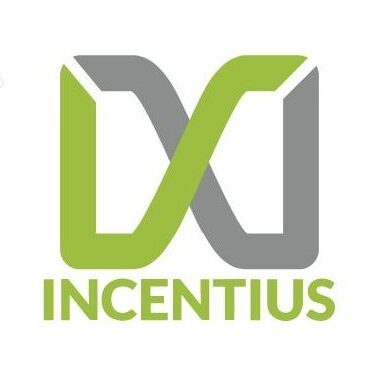Can I build a mobile app with VueJS? Marketing February 19, 2021
Vue.js or vue is a web framework used to develop single-page applications and user interfaces. It uses HTML-based template syntax and supports single-file components where the template, script, and styles can be collocated in a single file. The clean separation between javascript, HTML templates, and styling makes it very developer-friendly. Vue is not backed by any popular company and is mostly community-driven. It is used not only for web interfaces but also for desktop and mobile app development with tools such as electron framework, vue-native, and capacitor framework.
FEATURES OF VUE.JS
1. Easy to learn – For learning Vue.js, all you need is basic knowledge of HTML, CSS, and JavaScript. This makes the learning process much easier. It also provides many tools to its users that make Vue easier than other frameworks.
2. Documentation – Its documentation is very precise and clear. This will help a newbie to learn vue interestingly. It is well-structured and concise, covering all the possible topics.
3. Performance – Its script is very lightweight, which makes its performance faster and more efficient.
4. Open-source – It is an open-source framework that is available to all developers. No company will face any licensing issues.
5. Computed properties – One of the most important features of Vue.js, Computed properties help listen to changes made to data elements and reactively compute properties.
6. Template – In Vue.js, we use HTML-based templates that bind the DOM with Vue.js instance data. Developers can also use components with render functions.
7. Tooling and Libraries – Vue.js has various new and innovative tools such as CLI, , Vue Loader, development tools, Vue Router, and Vuex. These tools help developers to work smoothly and efficiently.
HOW TO BUILD MOBILE APPS USING Vue.JS?
By using Vue.js, we can develop mobile apps with the help of the Vue native and capacitor framework. These two frameworks use different approaches to packaging vue code into a mobile app. A capacitor is a framework that embeds a WebView component in a mobile app(Android and IOS) and renders HTML and CSS within it in a mobile app. Vue-Native, on the other hand, compiles vue components into native mobile code on each platform. Both approaches of having their pros and cons, and the decision to adopt either must be based on one’s preferences.
BUILD APPS USING VUE NATIVE
Vue Native is a JS framework written by GeekyAnts that will build vuejs code into a mobile app using Vue.js. It allows building the app into both android and IOS applications. Vue native is originally inspired by React Native and was a part of the React-Vue compilation. Developers can build apps with the help of their natively provided rich UI elements. This native framework helps in building lightweight apps as the code is finally compiled into native Android or IOS code. There are many APIs and components available in Vue native as well as access to device APIs like the camera or the native share component. Note that Vue native does not build to HTML. It uses the Vue system to build mobile components that can be mapped to native components in each mobile ecosystem. A large part of Vue native can also be understood from React native’s documentation and libraries.
FEATURES OF VUE NATIVE
1. Data binding – It supports two-way binding. This ‘reactive feature instantly propagates any data changes to the view. It also eliminates the need to write a lot of boilerplate code. Developers can follow the reactive programming paradigm and code their components with that in mind.
2. Declarative rendering – This type of rendering helps developers build state-to-outcome-based templates. Only the state-to-outcome mapping needs to be provided, and the underlying engine takes care of the ‘how’. Since vue is a reactive framework, this also means re-rendering only occurs when data changes.
3. Command-Line interface – A great cli reduces the time of initial project setup. It also includes a project generator and allows us to create different types of projects through a selection of pre-built boilerplate starter kits. It helps new developers to begin with a new project and generate scaffolding very easily.
4. Reusable UI components – This will help save the developer time as we can use the same code without writing them repetitively. We can use the same code on any platform (iOS, Android, or the web). This is one of the main advantages of using frameworks that compile to native code rather than writing in native code directly. A single codebase can be maintained.
5. Compiles to React Native – Developers can use React native for advanced features as the compile process of both Vue Native and React Native matches. It will become easier for developers to develop more complex features that require React Native libraries.
PROS
1. It is easy to learn Vue native as it uses HTML-like components, CSS, and JavaScript. Most of the developers are already familiar with all these languages.
2. Vue Native is flexible and scalable too. Developers can customize it as per their needs and interests. It also provides various tools like Vue CLI, Vuex, Vue Test Utils, etc., for developer delight.
3. It has well-defined and clear documentation. It helps developers to adapt to the new framework quickly.
4. It is compiled with React native, which allows further complex feature development if required.
5. It brings a reactive paradigm to the mobile app ecosystem. Hence developers familiar with reactive web programming can apply the same concepts to mobile app development.
6. It is open-source under an MIT license, which allows even commercial usage.
CONS
1. It may not be suitable for gaming or heavy-animation apps.
2. Some information regarding features is missing in Vue- Native documentation. To get all the information, you may have to look at React native’s documentation.
3. The approach is not completely single-code multi-platform. Some features and use of device APIs may require some native code as well.
4. Sometimes, the use of libraries of React native may be required to complete some features of a Vue native project.
Conclusion:
You can build an app with VueJS. One framework that can be used is vue-native. It is open-source and has great documentation. The WebView approach can also be used using frameworks like Cordova and Capacitor. We’ll outline the features and the pros and cons of those in a future blog.


